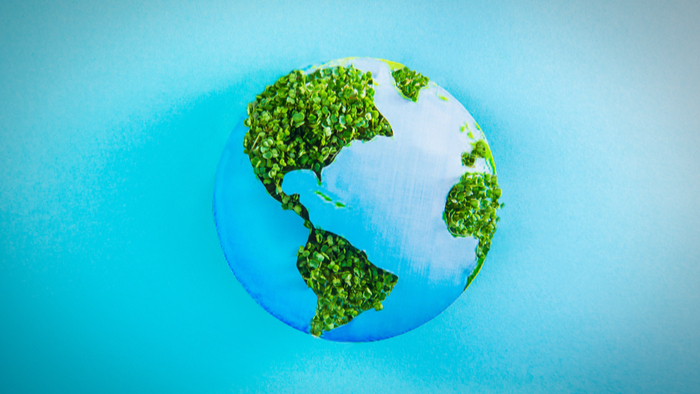Written by Yvonne Passaro
Known for his controversially interpreted doctrines, “The Unity of Opposites” and “Universal Flux”, Heraclitus once proclaimed, “The only constant in life is change”. The theorem has held up well for many years, especially when applied to life here on earth. There have been changes to the Earth’s continents, changes in atmospheric composition, changes to Earth’s orbit around the sun (Milankovitch cycles), and changes to the ocean currents; all of which have influenced Earth’s climate. However, the current warming trend is of particular significance as it is the result of human activity since the mid-20th century and is accelerating at an unprecedented rate.
So WTF is Climate Action?
Climate action means enhanced efforts to reduce greenhouse gas emissions and the strengthening of our adaptive capacity and resilience as a species. 2020 is a key turning point for our planet and urgent and ambitious action at every level is needed; from heads of state & the private sector to individual citizens who can use their unique influence to drive meaningful change.
Our current energy system thrives off keeping us anti-progressive, complacent and reliant on outdated practices. From an economic standpoint, the only way for businesses to survive the 21st century is to operate in a way that is clean, green, healthy, safe and more resilient. The consequences of inaction to the planet’s ecosystems are dire and lack of climate action will increasingly disrupt all sectors including agriculture, transport, tourism, water management & infrastructure and trade.
As countries move towards rebuilding their economies after COVID-19, recovery plans can act as the catalysts we need to properly mold our future and encourage the necessary action needed for all living beings to thrive. The current “crisis” is more of an opportunity for a profound, systemic shift (or quantum leap ) towards a sustainable economy that works for both people and the planet. While policy changes on a national level are necessary, the most effective changes start at the individual level. Everyone has the capacity to take climate action and eliminate the undesirable and detrimental treatment of our planet.
What can we do?
Hold yourself accountable & take personal inventory of your impact on the planet. I encourage you to try a Carbon Footprint Calculator. Just a few minutes exploring the site can really help put things into perspective. Knowing your current carbon footprint, without implementing any changes, can help encourage you to be more conscious of certain choices. Knowing where you stand can also help you to take the necessary steps towards lowering your carbon footprint. You can recalculate each week to track your success.
Eat Plant-Based. Your “foodprint” is the result of everything it takes to get your food from farm to plate. This incorporates the greenhouse gas emissions produced to grow, harvest, process, transport, cook, and dispose of your meal. An abundance of research has uncovered the tremendous impact that the mass production of meat, dairy, and eggs has on our planet. The U.N. has encouraged a shift towards a plant-based diet, which is arguably best for both people and the planet. Additionally, food waste is an enormous ‘hidden’ contributor to climate change. The carbon footprint of our wasted food is about 3.3 billion tons of CO2. Which leads into…
Support your local, organic farmers and join a CSA. This food not only produces less CO2 in transport, it is extraordinarily fresh and more nutritious. Air, artificial lights and temperature changes during transport lower traditional supermarket foods nutritional value. Foods from your local Farmers Market or CSA aren’t exposed to the chemicals, gasses or waxes used to preserve conventional produce during long-distance transport. When grown locally, crops are picked at their peak of ripeness rather than being harvested early to be shipped and distributed to your local retail store. Money spent with local farmers and growers stays close to home and is reinvested in businesses and services in your community, helping to keep your town greener.
SHOP SMARTER. Know where your $ ¥ £ € ? is going. Invest in small local businesses and support companies committed to transparency throughout the supply chain. Do research on products you are interested in buying, making sure materials are sustainably sourced & harvested and that workers are paid fair wages. Research the research you are researching. Your power as a consumer is enormously impactful. Thoughtful purchasing can help to minimize waste while reusing and repurposing keeps current goods out of our already overflowing landfills.
Travel smarter. Transportation is now the largest source of carbon emissions in the United States. No matter where you live, travel by car and plane contribute heavily to our carbon footprint. Take public transit, bike, walk and look into investing in hydrogen and alternative fuel industries. I also dare suggest notifying heads of all major airline companies of your concern for the industry’s exceptionally high carbon output. Might I go so far as to suggest you will reconsider traveling via plane until there are properly implemented changes. Could this encourage airline companies to use their 50 billion dollar COVID bailout to invest in airline energy solutions ? ♀ …
Organize. Consider communities that you are a part of and establish open communication with them on issues like these. Collective action has a major impact – and major influence – on change. Consider how you can gain further support by mobilizing a larger group to action & encouraging each other’s individual change.
Even though the global slowdown hasn’t led to us using 100% of our brain power or limitless human ingenuity on harnessing perpetual motion and zero point energy; at the very least we’ve been given time to implement tangible climate solutions, become more conscious of our individual impact and realize the urgent call to action. How we move forward determines whether or not the global shift from fossil fuels to renewable energy is a swift & seamless one. So enjoy more plant-based meals, start your own garden, compost food scraps, and use your brains intelligently.
UN: https://www.un.org/sustainabledevelopment/climate-change/
Financing Solutions: https://www.sdfinance.undp.org/content/sdfinance/en/home/sdg/goal-13–climate-action.html

